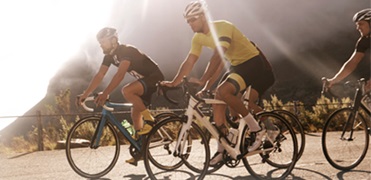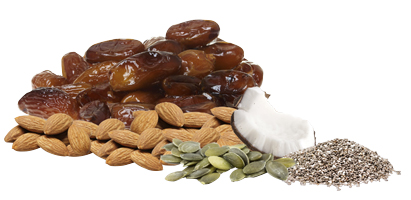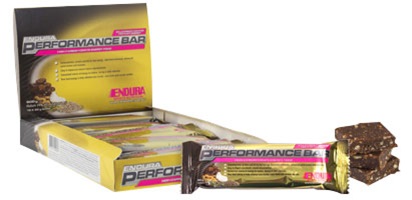Carb-Load your way to Improved Performance
Carbohydrate loading may be just the strategy you have been looking for to help you improve your physical performance, but do you know how it works, and how to use it effectively? To carb-load successfully you first need to drain your body’s glycogen (energy) stores by consuming a low carb diet (i.e. a maximum of 1 g of carbs per 1 kg of body weight each day) for 2 to 3 days. Following this ‘depletion’ phase you then increase your carbohydrate intake drastically for the next 2 to 3 days (now aiming for 10 g of carbs per 1 kg of body weight each day, with carbs making up 90% of your daily energy intake). Following this simple protocol should significantly increase your body’s glycogen stores. Aim to complete your carb-loading the day before your event in order for your body to be ‘fully loaded’ and ready to perform at maximal capacity on race day.
These are the basics of carb-loading, however you may be wondering how this strategy actually influences your performance. The exact science is not yet fully understood, however carb-loading has been shown to increase the amount of carbohydrates that your body uses as fuel during exercise as well as increasing the time before an athlete experiences exhaustion.1 By utilising a carb-loading strategy with your next training session you may be able to extend the boundaries of your performance potential.
Why Carbs are Essential for Competitive Athletes
It is likely you are aware of the importance and value of carbohydrates as an endurance athlete, but have you ever stopped to consider why they are important? Carbohydrates, specifically glucose, are the primary source of muscle fuel during exercise. By providing your body with a source of well-absorbed carbohydrates you can enhance your performance ability in the following ways by:2
- triggering the drive associated with motivation, i.e. prolonging your brain’s ability to keep your muscles working
- reducing your perception of effort, i.e. making it feel easier to keep on moving
- maintaining better control of the rate at which your cellular energy is used
- preserving your muscle’s glycogen stores
- improving muscular function
Endura Performance Bars – Natural Sports Fuel
An all new and natural energy bar has arrived to provide you with a powerful and delicious source of fuel in one convenient serve. The brand new Endura Performance Bars are a combination of raw whole-foods, designed to provide high-quality natural carbohydrates before, during, or after exercise. A handy source of natural energy, Endura Performance Bars are made from dates, almonds, chia seeds, pepitas and coconut, making them vegan and paleo-friendly as well as being easily digested, even when on the go. Endura Performance Bars are also gluten and lactose free with no chocolate coating, therefore no melting or mess while on the run. In addition, raw food ingredients offer naturally occurring micro- and macronutrients, such as fibre, that provide additional health benefits and support optimal nutrition.
Each Endura Performance Bar contains a substantial 33 g of dual-action carbs (both rapid and sustained-released), along with balanced amounts of protein and good fats. They are ideal used as pre-race fuel as well as to assist with your carb-loading strategy. During endurance sports, you can consume one bar each hour of exercise to help sustain your physical performance and provide your muscles with fuel. You can also take one Endura Performance Bar within four hours of completing a race, then another bar just before bed to support muscle repair and glycogen replenishment. If you have been searching for a healthy source of muscle fuel to power you to your victory, look no further than Endura Performance Bars.
Make Carbs Work for You
Carbohydrates really are essential for competitive athletes, but do you know how to make carbs work for you on race day? Table one provides a helpful guide so you can ensure you are getting the most out of your carbs before, during and after a race.
Table One: Timing, Amount and Options for Carbohydrates Before, During and After a Race.
| Timing | Amount of Carbs Required3 | Endura Options |
|---|---|---|
| 2.5 hours to 30 minutes before an event |
1 g - 4 g per kg of body weight |
1 to 2 serves of Endura Rehydration Performance Fuel plus 1 serve of Endura Optimizer or 1 Endura Performance Bar |
| During an event that lasts less than an hour | Up to 30 g per hour | 1 serve of Endura Rehydration Performance Fuel |
| During an event that lasts between 1 to 2.5 hours | Up to 60 g per hour | 1 serve of Endura Rehydration Performance Fuel plus 1 serve of Endura Sports Energy Gels or 1 Endura Performance Bar per hour. |
| During an event that lasts longer than 2.5 hours | Up to 90 g per hour | 1 serve of Endura Rehydration Performance Fuel, 1 to 2 serves of Endura Sports Energy Gels, plus ½ serve of Endura Optimizer or 1 Endura Performance Bar per hour. |
| Within 4 hours after an event | 1 g - 1.2 g per kg of body weight | 1 serve of Endura Optimizer or 1 to 2 Endura Performance Bars |
During a race, you want to get as much fuel to your working muscles as possible, to fight fatigue and keep you moving faster for longer. A combination of glucose and fructose has been shown to be superior to glucose alone for providing energy to the body.4 Endura Sports Nutrition supplements, including the brand new Endura Performance Bars, utilise both fructose and glucose to deliver fuel to your muscles as efficiently as possible. Look to Endura Sports Nutrition supplements for your carb requirements (using Table One as a guide) and fuel your body to success.
Always read the label. Use only as directed. If symptoms persist consult your healthcare professional.


